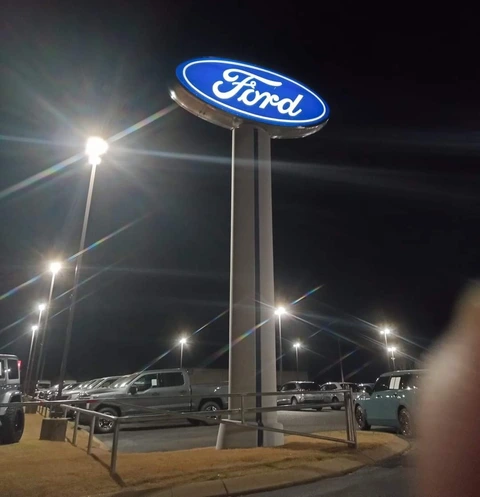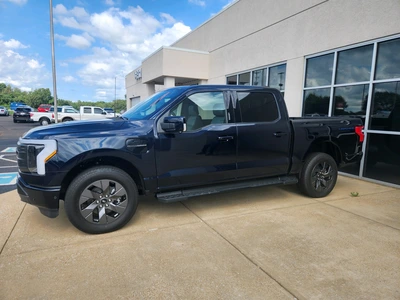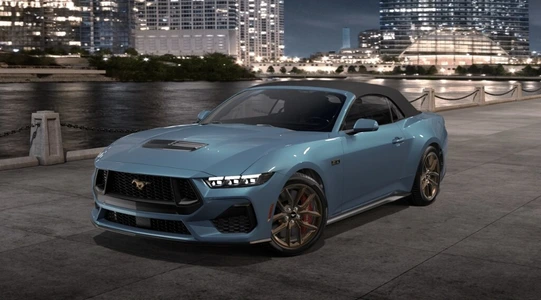Buying a new car is an exciting experience, but it can also be a daunting one if you’re not prepared. As a car salesperson, I’ve seen many customers make common mistakes that can lead to stress, overspending, or regret later on. I’m here to help you avoid those pitfalls so you can enjoy a smooth, hassle-free car-buying experience.
Here are the top mistakes to avoid when buying a new car and how you can make smart decisions that will leave you satisfied with your purchase.
1. Not Doing Enough Research
One of the biggest mistakes new car buyers make is walking into a dealership without having done proper research. Without understanding the features, pricing, or reliability of different models, you might end up buying a car that doesn’t suit your needs or budget.
What You Should Do: Start by researching the type of vehicle you want, considering factors such as fuel efficiency, safety ratings, maintenance costs, and resale value. Use online resources to compare models and read reviews from both experts and other buyers. This way, when you visit the dealership, you’ll have a clear idea of what you’re looking for.
2. Focusing Only on Monthly Payments
Many buyers focus solely on the monthly payment rather than the total cost of the vehicle. While it’s important to ensure the monthly payment fits your budget, this approach can sometimes lead to stretching out the loan term, which increases the overall amount you’ll pay over time.
What You Should Do: Always consider the total price of the car, including interest rates, loan terms, and any additional fees. It might be tempting to opt for lower monthly payments by extending the loan term, but remember that this could cost you more in the long run. Aim to find a balance between a comfortable monthly payment and a reasonable loan term.
3. Not Taking a Test Drive
Some buyers are so eager to buy a new car that they skip the test drive or don’t take it seriously enough. This can lead to buyer’s remorse if the vehicle doesn’t feel as comfortable or perform as well as expected.
What You Should Do: Always take the car for a thorough test drive. Pay attention to how it handles, how comfortable you feel behind the wheel, and whether the features meet your needs. If possible, test drive the car in different driving conditions (highway, city streets, etc.) to get a full sense of how it performs.
4. Ignoring the Trade-In Value of Your Current Car
Many new car buyers make the mistake of not paying attention to their trade-in’s value. Some don’t know what their current car is worth and accept the first offer without negotiation. This can lead to getting less than your car is worth.
What You Should Do: Before visiting the dealership, research the trade-in value of your car using online tools like Kelley Blue Book or Edmunds. This will give you a good idea of what your vehicle is worth and put you in a better position to negotiate a fair trade-in offer.
5. Failing to Consider the Total Cost of Ownership
Many buyers focus solely on the sticker price of the vehicle, forgetting to factor in the total cost of ownership. This includes insurance, maintenance, fuel costs, and depreciation. Failing to account for these ongoing expenses can lead to financial strain down the road.
What You Should Do: Consider the full picture when buying a car. Research how much it will cost to insure the vehicle, how fuel-efficient it is, and how much maintenance is required. This will help you make an informed decision and avoid unpleasant surprises after the purchase.
6. Overlooking Certified Pre-Owned (CPO) Options
Many buyers make the mistake of only considering brand-new cars without exploring certified pre-owned (CPO) options. These cars are often low-mileage, late-model vehicles that have been thoroughly inspected and come with warranties, offering excellent value.
What You Should Do: Before settling on a brand-new car, explore CPO vehicles at the dealership. You may find a nearly new car that offers the features you want at a lower price, complete with manufacturer-backed warranties.
7. Not Thinking Long-Term
Buying a car is a long-term commitment, and focusing only on immediate needs can lead to regret later. Some buyers don’t consider how their needs might change over the years, leading to frustration with their vehicle as life evolves.
What You Should Do: Think about your long-term needs. Are you planning to start a family? Will your commute change? Choose a car that will accommodate future changes in your lifestyle so you can enjoy it for years to come.
Conclusion: Avoid These Mistakes for a Smoother Car Buying Experience
By avoiding these common mistakes, you can ensure that your car-buying experience is positive and stress-free. As a car salesperson, my goal is to help you find the right vehicle that fits your needs and budget, while providing you with the information you need to make a confident decision.
David Freeman
(901) 508-3773
Homer Skelton Ford of Millington












